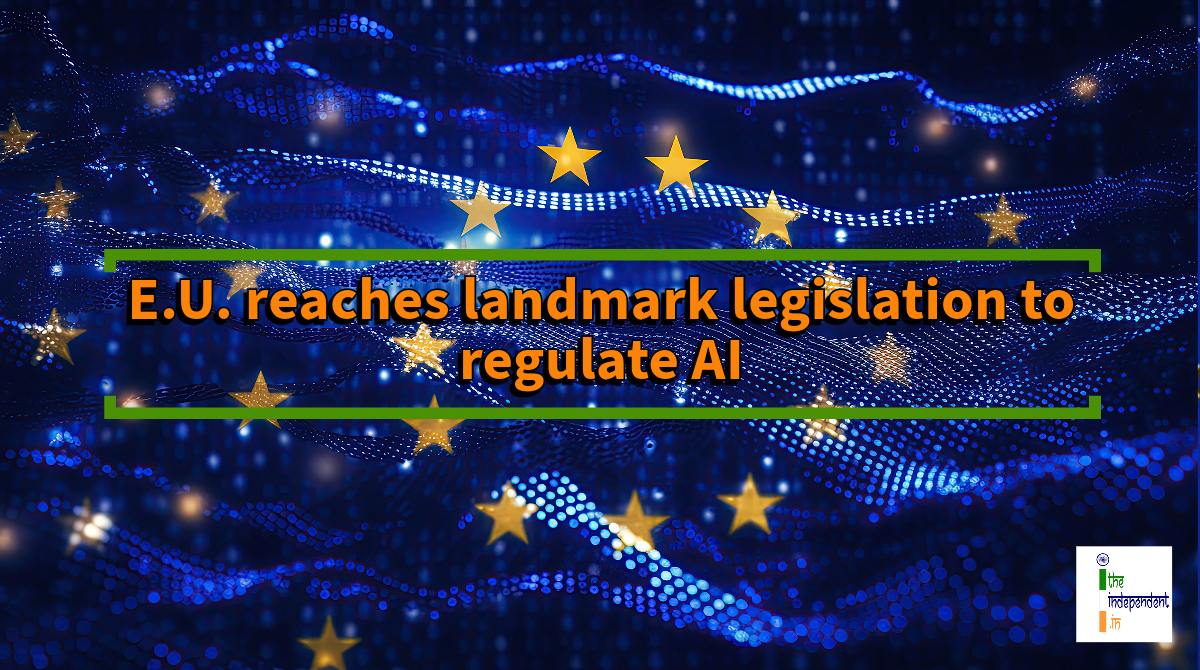
E.U. Officials have reached a provisional deal on the world’s first comprehensive laws, the Artificial Intelligence (AI) Act, to regulate the use of AI
The European Union (E.U.) Officials have reached a provisional deal on the world’s first comprehensive laws, the Artificial Intelligence (AI) Act, to regulate the use of AI.
The AI Act sets up a regulatory framework to promote the development of AI while addressing the risks associated with the rapidly evolving technology. The legislation bans harmful AI practices considered to be a clear threat to people’s safety, livelihoods and rights.
The law comes amid growing fears about the disruptive capabilities of AI. Consumers would have the right to launch complaints and fines could be imposed for violations.
Taking it to X, the President of the European Commission – Ursula von der Leyen tweeted,
The 🇪🇺 AI Act is a global first.
— Ursula von der Leyen (@vonderleyen) December 8, 2023
A unique legal framework for the development of AI you can trust.
And for the safety and fundamental rights of people and businesses.
A commitment we took in our political guidelines – and we delivered.
I welcome today's political agreement.
The regulatory framework, which classifies AI uses by risk and increases regulation on higher risk levels, was first proposed in 2021. The riskiest uses for AI are banned such as systems that exploit specific vulnerable groups, biometric identification systems for law enforcement purposes and AI that deploys manipulative subliminal techniques.
Limited risk systems, such as chatbots like OpenAI’s – ChatGPT, or technology that generates images, audio or video content, are subject to new transparency obligations under the law.
The European Parliament defines AI as software that can “for a given set of human-defined objectives, generate outputs such as content, predictions, recommendations or decisions influencing the environments they interact with.”
ChatGPT and DALL-E are examples of what is called “generative” AI. These programs learn from vast quantities of data, such as online text and images, to generate new content which feels like it has been made by a human.
Under the law, tech companies doing business in the E.U. will be required to disclose data used to train AI systems and carry out testing of products, especially those used in high-risk applications such as self-driving vehicles and healthcare. Tech firms that break the law will face fines of up to 7% of global revenue, depending on the violation and the size of the firm.
Going ahead, the European Parliament will vote on the AI Act proposals early next year, but any legislation will not take effect until at least 2025.
Once the AI Act is adopted, there will be a transitional period before the Regulation becomes applicable. To bridge this time, the European Commission will be launching an AI Pact. It will convene AI developers from Europe and around the world who commit on a voluntary basis to implement key obligations of the AI Act ahead of the legal deadlines.
To promote rules on trustworthy AI at the international level, the E.U. European Union will continue to work in fora such as the Group of 7 (G7), the Organisation for Economic Co-operation and Development (OECD), the Council of Europe, the Group of 20 (G20) and the United Nations (U.N.). Recently, the E.U. supported the agreement by G7 leaders under the Hiroshima AI process on International Guiding Principles and a voluntary Code of Conduct for Advanced AI systems.







